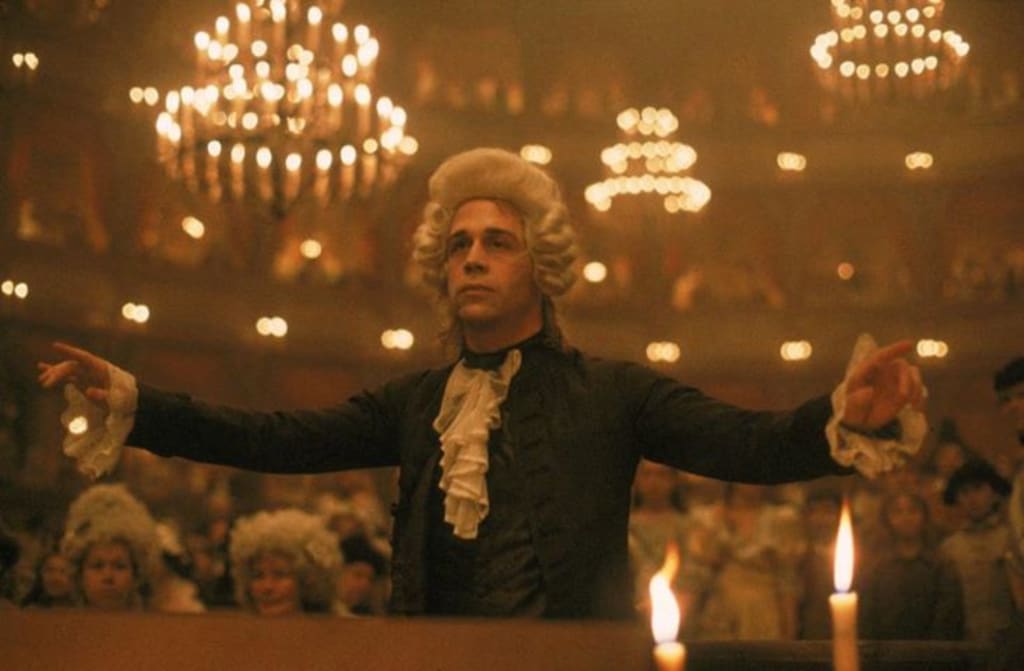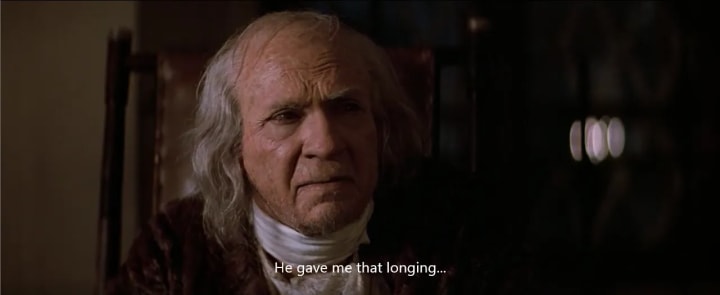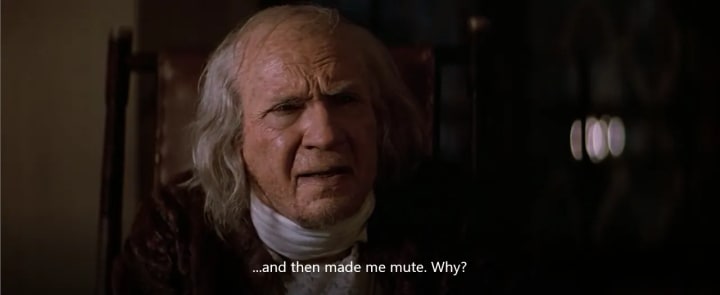
The 1980s were a very fascinating decade for film. World cinema started to become increasingly introspective as Americans buried the auteur-driven films of the 1970s with glittering, glamorous pictures influenced by rock videos.
Simply contrast "Rambo: First Blood II" with "Come and See." Both films are about war, and both were out in 1985, but they demonstrate the critical gap between the pop culture-driven American films and the contemplative, even horrific pictures being made around the rest of the world.
It seemed as though no one was willing to bridge the gap, to make grand films the way they used to, the kind of films that should be shown in big old movie palaces. No one seemed to interest to in stimulating the heart, mind, and funny bone, all the while delivering pure entertainment.
Then came Amadeus.
Amadeus proved that they could make them like they used to. In fact, they could make them bigger and grander then ever before.
“All I wanted was to sing to God. He gave me that longing… and then made me mute. If He didn’t want me to praise him with music, why implant the desire? Like a lust in my body! And then deny me the talent?”
The quote was by Antonio Salieri from the movie Amadeus
The competition between two outstanding classical music composers—the gifted Amedeus Mozart and the seasoned Antonio Salieri—is the subject of the film. Young Mozart was an Austrian musical prodigy who excelled at composition. He had a talent for creating a piece of music that became so well-known that people could hum it without even knowing what it was called.
Antonio Salieri, an Italian composer, was cursed with the immense love of music. He resented that God gave him a painful longing to compose music but did not give him that ability like He gave Mozart.


If there is one thing the cinema of the 1980’s gave us, it was great performances. Who can forget Robert DeNiro in Raging Bull, Michael Douglas in Wall Street, or even Dustin Hoffman in Tootsie? But when it comes down to it, F. Murray Abraham and Tom Hulce give the greatest performances of the decade in Amadeus.
The synergy between the two actors is palpable despite the fact that each actor provided something very unique to his or her roles. They function as opposites and mirror representations of one another. Forman records them conducting their different symphonies from the same perspective so that the contrast in their approaches may be clearly seen.
You can clearly see as Abraham shows Salieri’s subtle lack of confidence in his work, while Hulce’s Mozart rides his ecstasy into the dizziest heights of conducting.
Appreciating The Gift of Others Makes You Stronger
Mozart had sublime brilliance despite his immaturity. Salieri recognised Mozart's talent because he was a seasoned composer himself.
Being furious that God had given Mozart the skill he so dearly craved, Salieri vowed to kill Mozart. The Requiem, Mozart's well-known final composition, was to be written in exchange for a sizable quantity of money. Mozart would then be killed, and the Requiem would be played at Mozart's funeral to his own credit.
The ending of the movie was soul-touching. It got to a point where Salieri assisted Mozart to write the Requiem. The two were working exhaustively through the night before they stopped and finally talked to each other,
Mozart: I’m so ashamed.
Salieri: Of what??
Mozart: I was foolish, I…I thought you did not care for my work, or me. Forgive me…forgive me.
Salieri: How… Did my work please you?
Mozart: I never knew that music like that was possible!
Salieri: You flatter me.
Mozart: No, no! One hears such sounds, and what can one say but… “Salieri”.
Mozart died very soon after. Salieri then said,
“Your merciful God. He destroyed His own beloved, rather than let a mediocrity share in the smallest part of His glory.”
To me, Salieri symbolises a man who longs for perfection. His envied Mozart’s talent to the point that it becomes an obsession that eats away his sanity
Amadeus (1984) is a fantastic film that combines the themes of romance, comedy, and competition. The film serves as a potent reminder of the value of valuing the gifts that each person has, even though it is not historically accurate. This enables you to accomplish two crucial goals: you may learn from the one who shines and you can express thankfulness for what you already have.
About the Creator
k eleanor
Writer focused on film, media, fandom, music, comic, and all things geeky. Here you'll find Breakdowns, Analysis, Easter Eggs of Movies and series. Every universe comes together at this place. So just sit back, relax and enjoy the ride.






Comments (1)
Well, this was an excellent breakdown of one of my favorite films! Well-wrought! Another brilliant performance in an historical fiction about a classical composer, and well worth the time, is Gary Oldman's depiction of Beethoven in "Immortal Beloved".